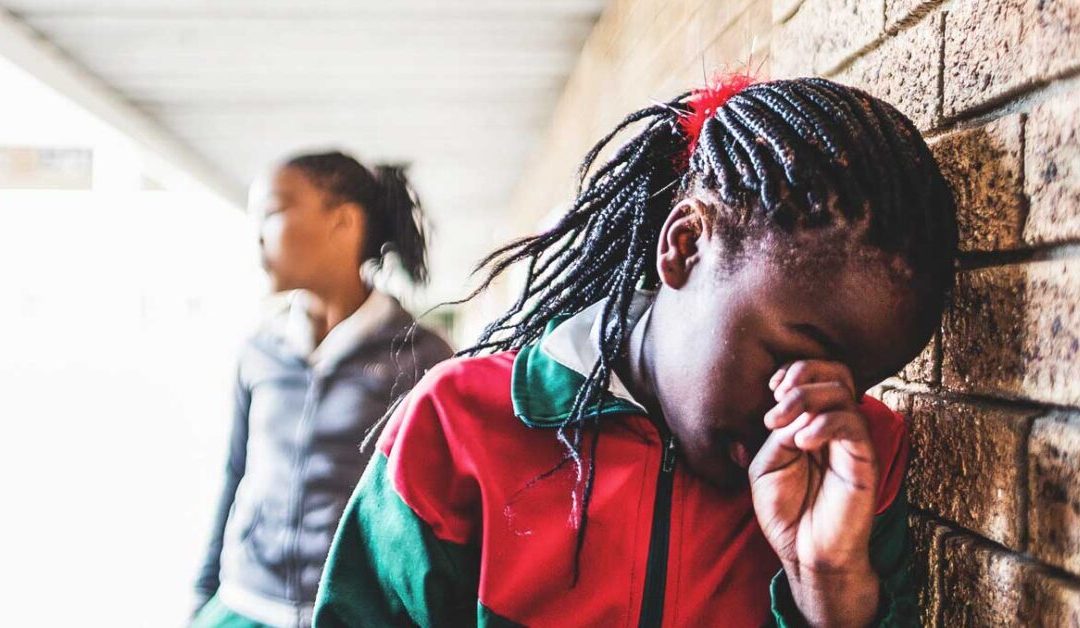A bully can make something as simple as going to the bus stop or recess a nightmare for children. Bullying has the potential to cause profound emotional wounds. In severe cases, it might include threats of violence, property destruction, or someone being gravely injured.
If your child is being bullied, you want to do everything you can to stop it. You can assist your kid in coping with teasing, bullying, or malicious gossip and reduce the long-term effects. Even if bullying isn’t a problem in your home right now, it’s vital to talk about it so your children are prepared if it arises.
When Does Bullying Become Bullying?
At some time, every child is taunted by a sibling or a friend. When done in a playful, pleasant, and reciprocal manner, it is typically not damaging, and both children find it amusing. When teasing becomes nasty, rude, and persistent, it becomes bullying and must be stopped.
Bullying is the deliberate torturing of another person in physical, verbal, or psychological means. It can take many forms, including beating, shoving, name-calling, threats, and ridiculing, as well as extortion of money and property. Some children bully others by avoiding them and spreading false information about them. Others utilize social media or text messages to tease or damage others’ sentiments.
It’s critical to treat bullying seriously rather than dismissing it as something that children must “tough out.” The consequences can be severe, affecting children’s feelings of safety and self-worth. Bullying has been linked to catastrophes such as suicides and school fights in the past.
Why Do Children Bully Each Other?
Bullying occurs for a variety of causes among children. They may target children because they require a victim — someone who seems emotionally or physically weaker, or just acts or appears differently in some manner — in order to feel more important, popular, or in command. Bullies aren’t necessarily bigger or stronger than their victims.
Because of how they’ve been handled, some children harass others. They may believe their actions are typical since they come from families or other environments where everyone gets upset and screams or calls each other names on a daily basis. People are “voted off,” ostracized, or humiliated for their looks or lack of talent on several famous TV shows, which appears to foster meanness.
What Are Bullying’s Symptoms?
It’s difficult to determine whether your child is being bullied unless he or she tells you about it or has obvious bruises or injuries.
However, there are several red flags. Parents may observe that their children:
- Not eating, sleeping well, or doing the activities they typically like seem differently or appear nervous appear moodier or more easily irritated than usual avoid certain situations (like taking the bus to school)
If you suspect bullying but your child is reluctant to talk about it, think of creative methods to bring it up. For example, you may ask, “What do you think of this?” or “What do you think that individual should have done?” after seeing a situation on TV. “Have you ever seen this happen?” or “Have you ever experienced this?” could be some of the inquiries that arise. You might wish to talk about any childhood events you or a family member experienced.
Make it clear to your children that if they are being bullied or harassed — or witness it happening to someone else — they should tell someone, whether it’s you, another adult (a teacher, school counselor, or family friend), or a sibling.
What Role Can Parents Play?
Listen quietly and provide comfort and support if your child tells you that he or she has been bullied. Kids are frequently hesitant to inform adults about bullying because they are embarrassed and humiliated that it is occurring, or they are concerned that their parents would be disappointed, sad, angry, or reactive if they do.
Sometimes children believe that it is their fault, that things would be different if they looked or acted differently. They’re sometimes afraid that if the bully finds out they told, things will grow worse. Others are concerned that their parents will not believe them or take action. Alternatively, children may be concerned that their parents may pressure them to fight back when they are afraid to.
By talking to you about it, praise your youngster for doing the right thing. Reassure your youngster that they are not alone; many individuals are bullied at some time in their lives. Explain that the bully, not your child, is behaving inappropriately. Assure your youngster that you will work together to find a solution.
In studies, the majority of children and teenagers agree that bullying occurs at school. Inform someone at school about the problem (principal, school nurse, counselor, or teacher). They can often keep an eye on things and take action to prevent problems from escalating.
Because “bullying” can refer to a variety of scenarios, there is no one-size-fits-all solution. What works in one circumstance might not work in another. The age of the children involved, the severity of the problem, and the type of bullying behaviors will all play a role in determining the best course of action.
If you hear that the bullying will get worse if the bully finds out your child told or if physical damage is threatened, take it seriously. It might be beneficial to approach the bully’s parents on occasion. However, in most instances, instructors or counselors should be contacted first. If you’ve exhausted those options and still want to meet with the bullying child’s parents, it’s preferable to do so in the presence of a school official who can mediate, such as a counselor.
Anti-bullying policies and initiatives are commonplace here at Ladela. Bullying laws and regulations exist. Learn about the laws that apply to your neighborhood. You may need to notify legal authorities if you have significant worries about your child’s safety.
Advice for Kids
If bullying occurs, parents may assist their children in learning how to cope with it. It may be tempting for some parents to advise their children to fight back. After all, you’re upset that your child is suffering, and you may have been encouraged as a youngster to “stand up for yourself.” Alternatively, you may be concerned that your child may be bullied in the future and believe that fighting back is the only way to put a bully in their place.
However, it is critical to educate children not to fight or bully back in response to bullying. It has the potential to swiftly devolve into violence, chaos, and injury. Instead, move away from the scene, socialize with others, and inform an adult.
Here are some additional ways youngsters might feel better and improve their situation:
- Use the buddy system to avoid the bully. If a bully is around, use a separate bathroom, and don’t go to your locker if no one else is there. Make sure you have someone with you so you don’t have to face the bully alone. On the bus, in the corridors, at recess — wherever the bully is — team up with a friend. Offer to help a buddy in the same way.
- Keep your rage in check. It’s normal to be offended by the bully, but bullies live on it. It gives them a sense of authority. Practice not weeping or looking red or angry as a reaction. It takes a lot of effort, but it’s a valuable talent for avoiding a bully’s attention. Counting to ten, writing down angry words, taking deep breaths, or walking away are some of the “cool down” methods that youngsters find helpful. Teaching children to keep their faces calm until they are free of any danger is sometimes the best thing to do (smiling or laughing may provoke the bully).
- Act brave, move away, and don’t pay attention to the bully. Tell the bully to come to a halt and then walk away. Act disinterested or contact someone on your mobile to distract yourself from the unpleasant words. You’re demonstrating that you don’t care by ignoring the bully. The bully will probably grow tired of bothering you at some point.
- Inform an adult. Teachers, principals, parents, and school lunchroom staff may all play a role in preventing bullying.
- It’s something to talk about. Speak with a trusted adult such as a guidance counselor, teacher, brother, or friend. They might be able to provide some useful advice. Even if they are unable to resolve the problem, they may be able to make you feel less alone.
Building Confidence
Bullying may have a negative impact on a child’s self-esteem. Encourage your children to spend time with peers who have a good impact to help repair it. Participating in organizations, sports, and other fun activities strengthens individuals and fosters connections.
Provide a sympathetic ear in difficult times, but also urge your children to tell you about the positive aspects of their day and to listen carefully. Assure them that you believe in them and that you will do all possible to stop any bullying.
INTERNATIONAL FOUNDATION PROGRAMME
Level 3 International Foundation Diploma for Higher Education
The Level 3 International Foundation Diploma for Higher Education Studies is a nine-month, pre-university qualification accredited by NCC Education, a leading UK awarding organisation in IT and Business.
Many UK universities recognise the Level 3 International Diploma for Higher Education Studies as an entry qualification to BA, BSc or BEng degree courses. You can also apply to universities in the USA, Canada, Ireland and Australia.



